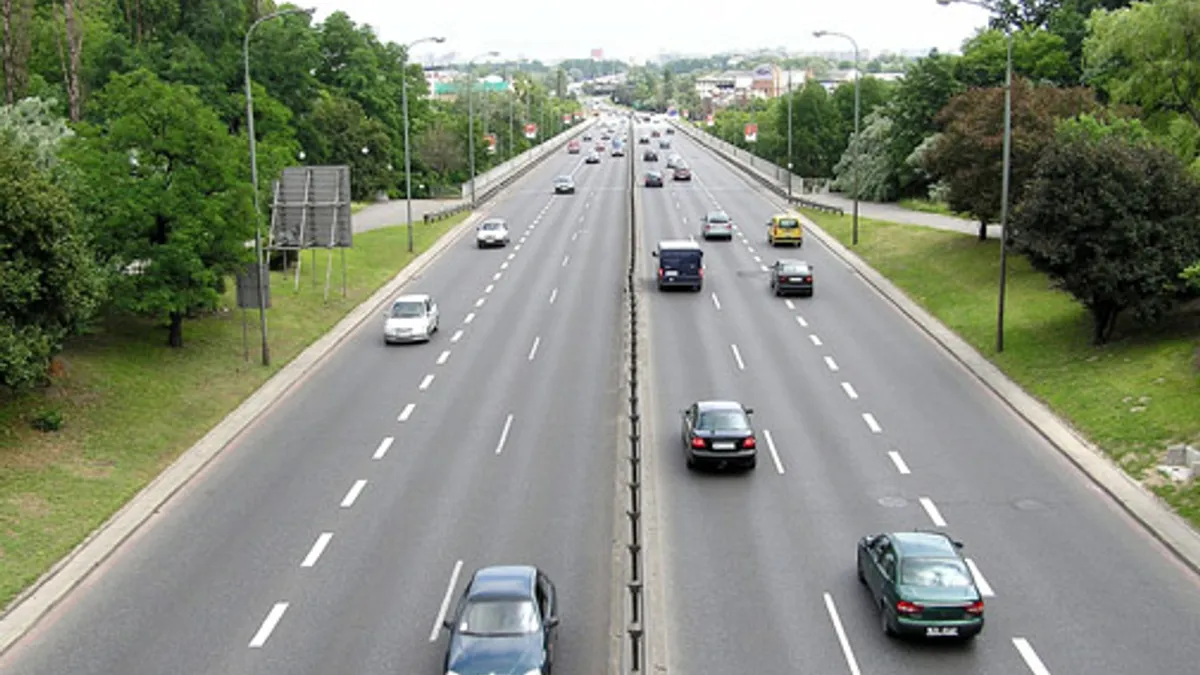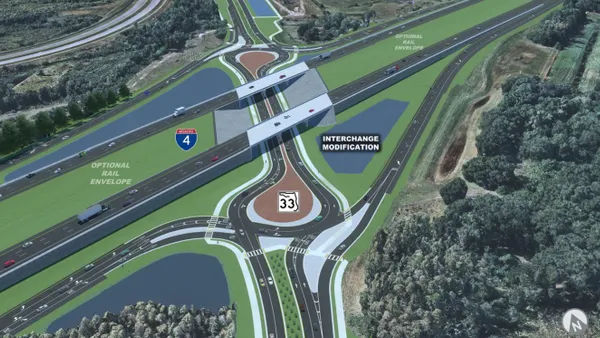Dive Brief:
- A 16-mile length of Interstate 85 in Georgia is being transformed into a smart highway lab to research road sensors, electric and autonomous vehicle technologies and solar panel-imbedded pavements, according to CityLab.
- In partnership with Georgia Department of Transportation, the Ray C. Anderson Foundation will explore low and high-tech solutions for creating a "zero-carbon, zero-death, zero-waste, zero-impact" roadway.
- Drones are being used for aerial data collection over the highway span, and additional test-bed technologies include sensors for detecting tire pressure in passing vehicles.
Dive Insight:
Smart highways are undeniably getting smarter, with large stretches of the U.S. interstate system, including the "Ray," as its colloquially known in Georgia, and a similar 35-mile corridor of I-33 in Ohio being used to test sensor deployment for traffic and weather data collection, as well as to develop new technologies and systems for autonomous vehicles.
At the 2017 ConExpo Tech Experience in Las Vegas, Local Motors displayed self-driving vehicles that could charge from 3-D-printed, solar-powered induction coils imbedded in highway asphalt. Self-charging roadways indeed are likely a first step toward full vehicle autonomy, and are already being deployed in public transportation demonstration projects. In January 2017, Israeli–based startup ElectRoad announced it would deploy a sub-surface electromagnetic power system to charge electric bus routes in Tel Aviv.














